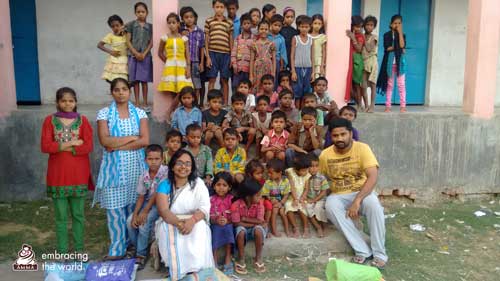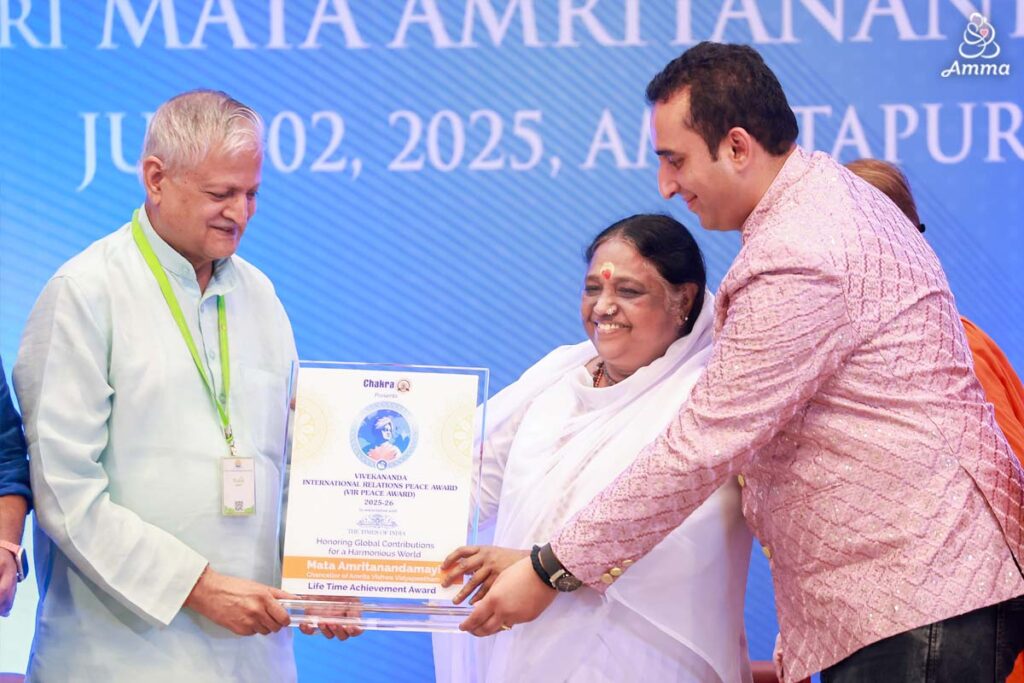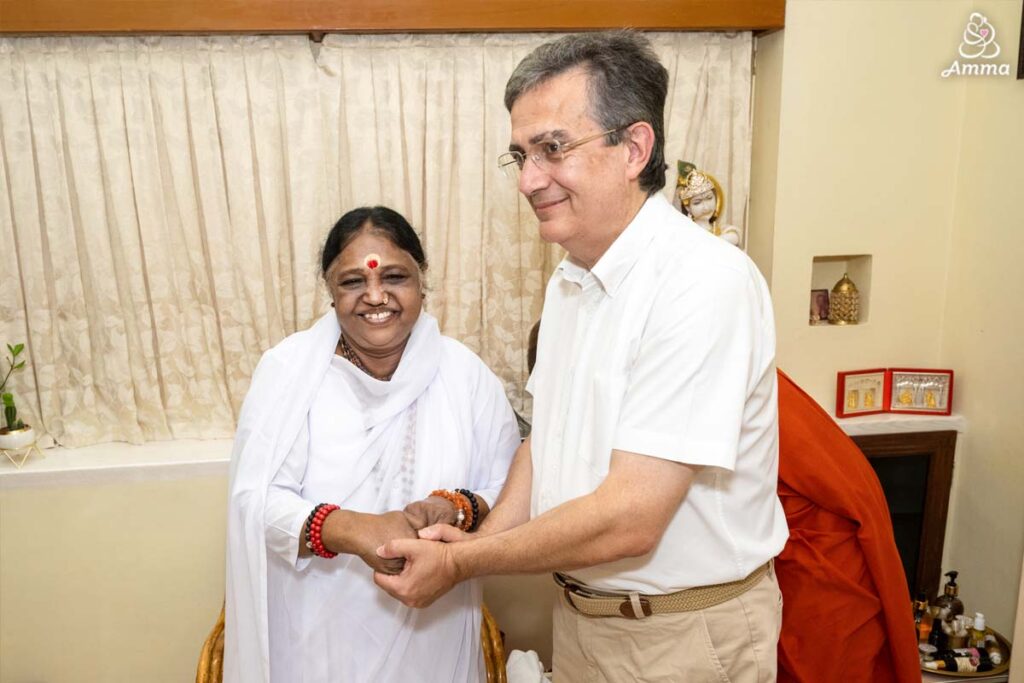The Mushar tribal colony, located on the outskirts of Hadiabad Village in Bihar, is small, ostracized community due to a troubled history of caste conflict. Living in extreme poverty, many of the villagers subsist on infrequent meals of plain rice and salt and struggle to support their families as day laborers for local farmers.
Since the Mushar children are not welcome in other schools, the government built a separate primary school in the area. Lack of attendance and furlough is common as teachers are not invested in the community and keep sporadic schedules with no proper curriculum.
Residents are very disheartened by the physical conditions in the Mushar colony. Homes are makeshift dwellings filled with stagnant water and filth left by the domestic pigs with whom they coexist with. Skin problems, lice and other health issues are common as a result of these squalor conditions.
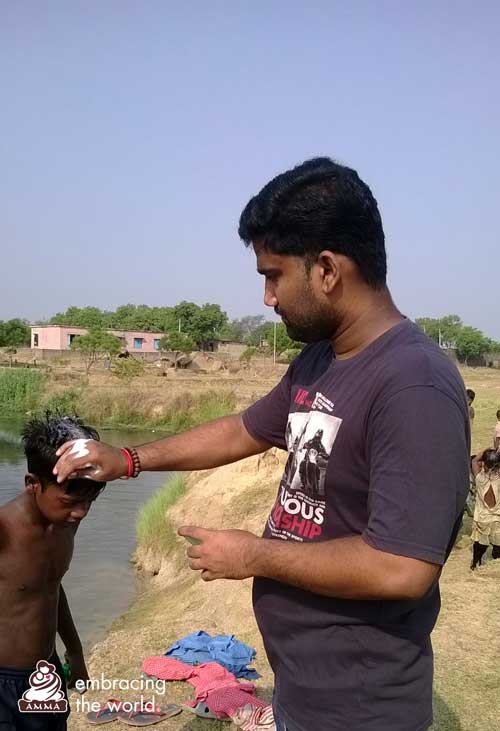
In response to this dire situation, Amma sent teams from Amrita University’s AMMACHI Labs to deliver concrete aid and sustainable solutions to the Mushar tribal colony. Despite the high summer temperatures, our volunteers spent one month in Bihar and lived nearby this community in order to build connections and understand the issues. AMMACHI Labs also conducted life skills education and basic sanitation awareness as part of its massive Women Empowerment Sanitation campaign. One day, the team spontaneously took some children to the river to teach them the importance of bathing and hygiene. Initially, only six children came along, yet by the time they reached the river, 25 excited children participated in the fun, engaging and impactful event. The children were given towels, soap, medicated shampoo and oil and taught proper usage. More plans to continue sanitation awareness and toilet building in this region are in the works.
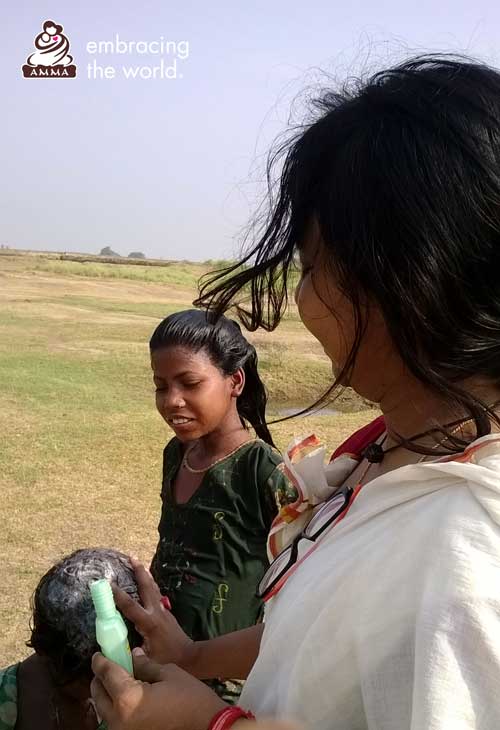
In the past year, Amma has not only deployed these sanitation and life skills camps across rural India but also regularly sends team members from Amrita University to spend time with the villagers to experience their lives. These programs all oper Amma’s AServe project teaches how to respectfully engage with others and learn to work together to discover unified solutions to deep-rooted problems.


